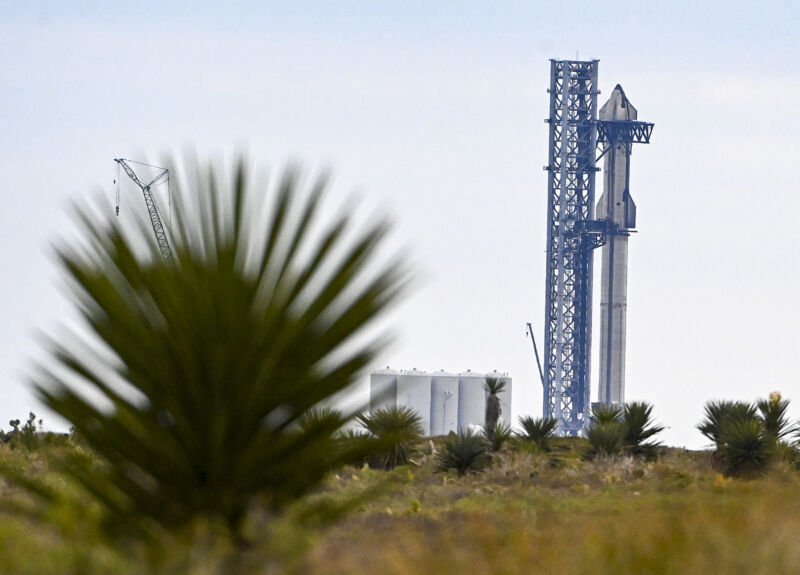
On Monday, the Federal Aviation Administration (FAA) gave SpaceX one of several approvals that will be needed before the company can launch its Starship from the Boca Chica site in South Texas. The environmental approval comes in part because technology developments have allowed the company to eliminate some of the facilities initially planned for the location, greatly reducing its footprint and impacts.
Still, the company will face restrictions within the site and timing of the launches; it will also be expected to support some environmental and historical interests. The company will still need the FAA’s approval regarding safety and risks before it can begin operations.
Less is more
SpaceX has been pursuing atmospheric testing of its hardware at Boca Chica. Ultimately, it plans to turn this into the main launch site for the Super Heavy vehicles that will loft its Starship vehicle into orbit, along with potential commercial cargo. The booster would also potentially return to the site or land offshore and be ferried back.
All of that would involve a shift from experimental operations to regular commercial flights. And that triggers the National Environmental Policy Act (NEPA) evaluation, to ensure that neither the construction of the necessary facilities nor the plan for operations will damage historical or biological features of the area.
The FAA’s final environmental assessment was made significantly easier because SpaceX amended its plans to delete three major components of the launch facility. The first of these would take commercially supplied methane and eliminate some impurities to generate a fuel compatible with the company’s Raptor engines. But changes to those engines have made them capable of operating with commercial-grade methane, eliminating the need for this facility.
The other major eliminations were a desalination facility and a power plant that would be needed to operate it. The water produced by it would be used to limit the spread of flaming exhaust during launch. SpaceX removed these because it remains uncertain whether a water quench will be required during launches; if it is, it will be handled with water trucked to the site.
Making peace with the locals
NEPA also requires that SpaceX’s plans be evaluated to determine if they disrupt the area’s people, places, and wildlife. For people, SpaceX will be required to improve the system it uses to alert the local population of launch activities. In addition, most holiday weekends, including those for mother’s and father’s days, have been set off-limit for launches or anything else that will require restricted access in the launch area, including a stretch of highway and some nearby beaches. Noise issues were considered relatively insignificant, with SpaceX agreeing to compensate people for any damages due to sonic booms.
Biologically, the big issue is sea turtles, which come to the nearby beaches to lay eggs. The timing of the turtles’ nesting is triggered in part by light from the Moon, which means that artificial lighting can interfere with the animals’ reproduction. Thus, SpaceX will be required to arrange for shielded and directed lighting to limit what spreads to the nearby beach and will hire a biologist to assess its efforts. It will also have to take steps to keep peregrine falcons from nesting on any structures on site.
The company will also be required to help promote wildlife photography in the area, sponsor beach cleanups, and build wildlife crossings on the highway that leads to its site. During construction, it will need to avoid having vehicles carry non-native species to its location; the same will apply if, during operations, barges bring the booster back following offshore landings.
Finally, the site encompasses a historic oddity: the location of a battle fought between Union and Confederate forces after the Civil War ended and the Confederate government ceased to exist. SpaceX will put up historic markers accordingly and act to preserve any relevant items found during construction.
Overall, none of these conditions seems like a major problem, so the approval seems to be a major win for the company. Any issues regarding how well the company lives up to its agreement, and any lawsuits that ensue, will happen within the context of this approval and be less threatening to the company’s operations.
https://arstechnica.com/?p=1860589

